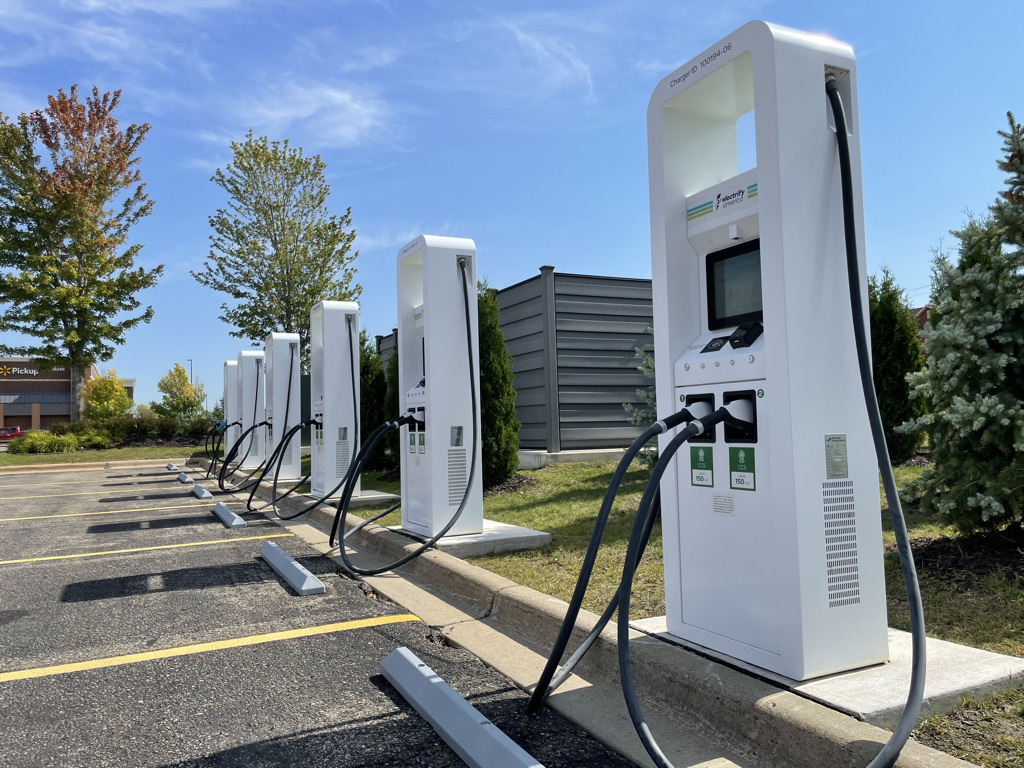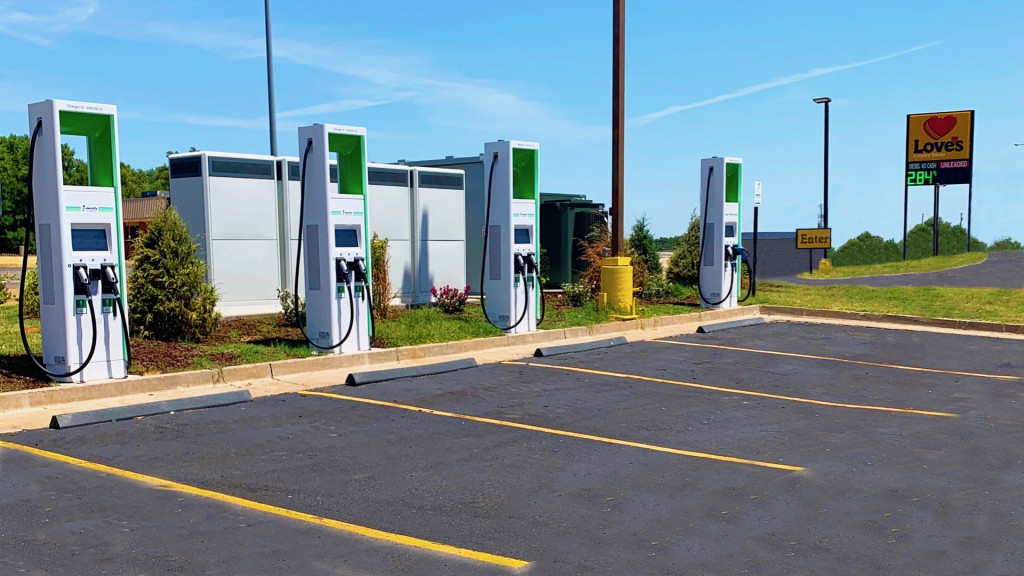Electrify America slaps frequent EV chargers with 15% price hike

Electrify America plans to raise EV charging prices in March, with frequent users seeing the biggest price hike.
Members of the company’s Pass+ frequent charging program will see rates increase to $0.36 per kwh, while non-members will pay $0.48 per kwh. Both rates increase by $0.05 kwh, but Pass+ members also pay a $4.00 a month fee (which remains unchanged), and they’ll effectively see a 15% rate increase with the fee factored in.
Price-per-minute rates are also going up. Customers will now be billed at $0.15 per minute for charging at up to 90 kw (a $0.03 increase) and $0.29 per minute up to 350 kw (an additional $0.05 per minute).

Electrify America chargers
“Electrify America has been able to maintain consistent and uniform pricing since September 2020; however, rising operational and energy costs have now made adjusting our pricing necessary,” an Electrify America spokesperson told Green Car Reports. “Our focus remains on meeting the needs of electric vehicle drivers of today and tomorrow by investing in our network expansion and enhancement to customer experience.”
The national-average price of electricity is just 11.1 cents per kwh, according to the Energy Information Administration, and specific to commercial electricity that a charging station might use, the cost of electricity has risen nearly 11% year over year. So EA’s price hike may be warranted on a simple cost basis.
Electrify America last rebooted pricing in 2020—a controversial change that effectively hiked prices for some models that didn’t charge at the peak rate for their charge-power tier.
Although a price hike for public EV charging is unlikely to affect driving the way a gas-price hike would, it erases some of the operating-cost advantages that EVs have.

Electrify America charging stations at Love’s Travel Stop
Demand charges—typically issued by utilities for sudden spikes in electricity demand from other types of businesses—can significantly hike the cost that charging networks pay per kwh though, and only a few states, such as Massachusetts, are tackling why. Demand charges are primarily aimed at industrial users of electricity, but charging networks have been hit with them.
In this case, price hikes might be motivated by profitability, as Electrify America has at various times been looking for additional investment in a bid to scale up its network.